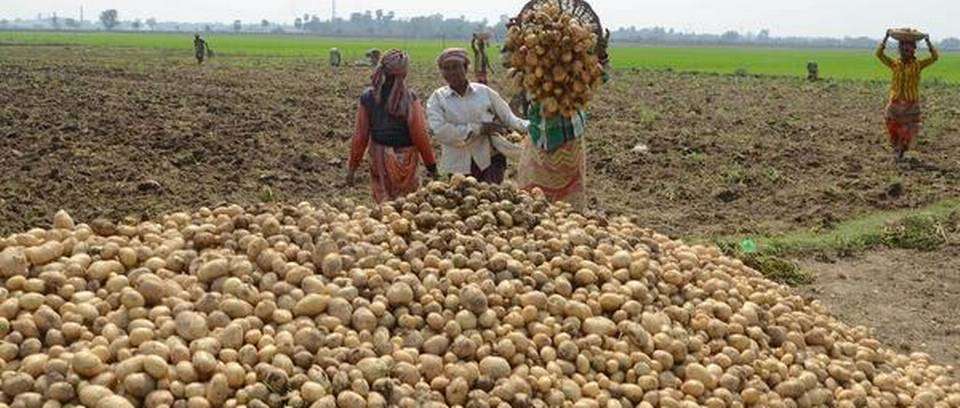Better Centre-State co-operation on land lease will ensure that both farmers and sponsors stand to gain
Agriculture growth is under stress at 3.4 per cent in 2017-18 compared with 6.3 per cent in 2016-17. This can largely be attributed to declining soil fertility, fragmentation of landholdings, and increasing restrictions to commercialisation and modernisation of farming and farm-related activities.
As announced in Budget 2017-18, the government recently came out with a Model Contract Farming Act, 2018 with a clear intent to increase farmers’ income by creating an alternative market mechanism that links them to national and international markets. Prior to this, several States have been hesitant to allow contract farming. With the Act being notified, the debate now obviously shifts to the various operational aspects.
The concept of contract farming refers to a system in which bulk purchasers, including agro-processing, exporting and trading units, enter into contracts with farmer(s) to purchase a specified quantity of any agricultural commodity at a pre-agreed price.
The contracting firm/company, also known as the sponsor, provides all production support to the contacted farmers, including extension services with full protection of land rights.
Addressing the challenges
How does the new Act deal with some of the old challenges that affect agricultural markets, which invariably remain in the clutches of the middlemen? The Act allows farmers and farmer producer organisations (FPOs)/farmer producer companies to directly link with companies, thus enhancing market linkage and removing dependence on middlemen.
Since 86 per cent of total landholdings in the country belong to the small and marginal category, it is expected that the Act will have an indirect effect on farmers forming FPOs and pooling their land for a better say in determining the prices of their produce.
Further, under contract farming, farmers no longer have the onus of transporting their produce to the mandis, as sponsors usually collect the produce from the farm gate — thus reducing farmers’ cost and, thereby, translating into increased incomes.
The Act has also done well to insulate land ownership rights of the farmers from any potential infringement from the sponsors or the buyers. This is important given the fact that fear of losing their land has always inhibited farmers from embracing any new policy.
Contract farming, besides creating new markets for farmers’ produce, can also positively impact the production process by facilitating better access to technology, crop diversification, extension services, financing and crop insurance.
In fact, lack of formal financing mechanism and lower penetration of crop insurance, in particular, have long been the primary cause of farmer distress in the country.
The Act, despite being well-intended, has its share of shortcomings. It mandates the formulation of a contract farming board to guide several aspects of the contract, including pricing of produce.
While the intent is correct, to provide a cushion against possible exploitation of the farmers, if not exercised judiciously, the board may set a price too high thus deterring sponsors.
Further, the Act mandates the sponsor to buy the entire contracted amount of produce from the farmers, even if the quality parameters are not met, albeit at a lower price. This again bears heavy on the sponsor, who enters a contract farming agreement specifically to procure a specific grade of produce.
Also, while the spirit of providing insurance support to the farmer is good, rather than burdening the sponsor with this additional cost, which may get adjusted in the price paid to the farmer, the government should consider covering this cost.
State subject
Being a State subject, operationalising any reform in agriculture essentially needs a buy-in from State governments.
Most often, such reforms fall victim to the political differences between the Centre and the States. The need of the hour, therefore, is for proactive hand-holding and guidance of the sponsors at the State level.
Also, to tap the full potential of contract farming, the Act needs to be supplemented by well-balanced leasing laws at the State level.
Allowing leasing of land will help address the issue of fragmented landholdings and encourage the private sector to make bigger commitments in terms of technology and capital. This will boost productivity, by benefiting from economies of scale.
It may be noted that the Model Agricultural Land Leasing Act, 2016, has not seen much uptake at the State level, and none of the States has adopted the Act in its entirety. One only hopes that the States are more accommodating this time round.
More Centre-State interface along with clarifying enabling policy interventions will go a long way in fulfilling the intent and the purpose of the Act.
The writer is President, CII.
Source: Business Line










